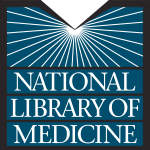- Settore: Library & information science
- Number of terms: 152252
- Number of blossaries: 0
- Company Profile:
The National Library of Medicine (NLM), on the campus of the National Institutes of Health in Bethesda, Maryland, is the world's largest medical library. The Library collects materials and provides information and research services in all areas of biomedicine and health care.
The ion in an electrolyzed solution that migrates to the anode; broadly: a negatively charged ion.
Industry:Medical
A single disorder, trait, or pattern of traits caused by different mutations within a gene.
Industry:Medical
Dimness of sight especially in one eye without apparent change in the eye structures -- called also lazy eye, lazy-eye blindness.
Industry:Medical
1) Persistent flexure or contracture of a joint.
2) Congenital fixation of a joint in an extended or flexed position.
3) Any of a group of congenital conditions characterized by reduced mobility of multiple joints due to contractures causing fixation of the joints in extension or flexion.
Industry:Medical
A digestive disease that is caused by an immune response to a protein called gluten, which is found in wheat, rye, barley, and oats. Celiac disease damages the lining of the small intestine and interferes with the absorption of nutrients from food. A person with celiac disease may become malnourished no matter how much food is consumed.
Industry:Medical
1) Age, lifestyle, diet, and gene related degeneration of arteries due to deposition of lipoid plaques (atheromas) on inner arterial walls; main cause of coronary artery disease, a leading cause of death.
2) A common form of arteriosclerosis characterized by deposits of plaques (atheromas) containing lipids, carbohydrates, blood and blood products, fibrous tissue, and calcium deposits. These plaques are found in the intima of large- and medium-sized arteries.
Industry:Medical
1) Unequal curvature of the refractive surfaces of the eye. Thus a point source of light cannot be brought to a point focus on the retina but is spread over a more or less diffuse area. This results from the radius of curvature in one plane being longer or shorter than the radius at right angles to it. (Dorland, 27th ed)
2) Optical defect in which refractive power is not uniform in all directions (meridians); light rays entering the eye are bent unequally by different meridians, which prevents formation of a sharp image focus on the retina.
Industry:Medical
The transference of bone marrow from one human or animal to another.
Industry:Medical
1) Having caverns or cavities.
2) Of tissue: composed largely of vascular sinuses and capable of dilating with blood to bring about the erection of a body part.
Industry:Medical
The eight bones of the wrist: scaphoid bone; lunate bone; triquetrum bone; pisiform bone; trapezium bone; trapezoid bone; capitate bone; and hamate bone.
Industry:Medical
